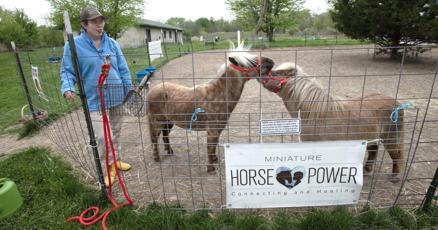Healing Hooves: How One Equine Therapy Startup Is Transforming Lives Beyond the Stable

Mini horses offer a unique and gentle introduction to equine companionship, particularly for children who may have limited experience with animals. Their diminutive size and non-threatening demeanor make them an ideal first encounter for young animal lovers, especially those raised in urban settings where interactions with large animals are rare. Unlike full-sized horses that might seem intimidating, mini horses are approachable, adorable, and perfectly scaled to create a welcoming and comfortable experience for children. Their small stature allows kids to feel more confident and less overwhelmed, encouraging a natural and positive connection with these charming miniature equines.
